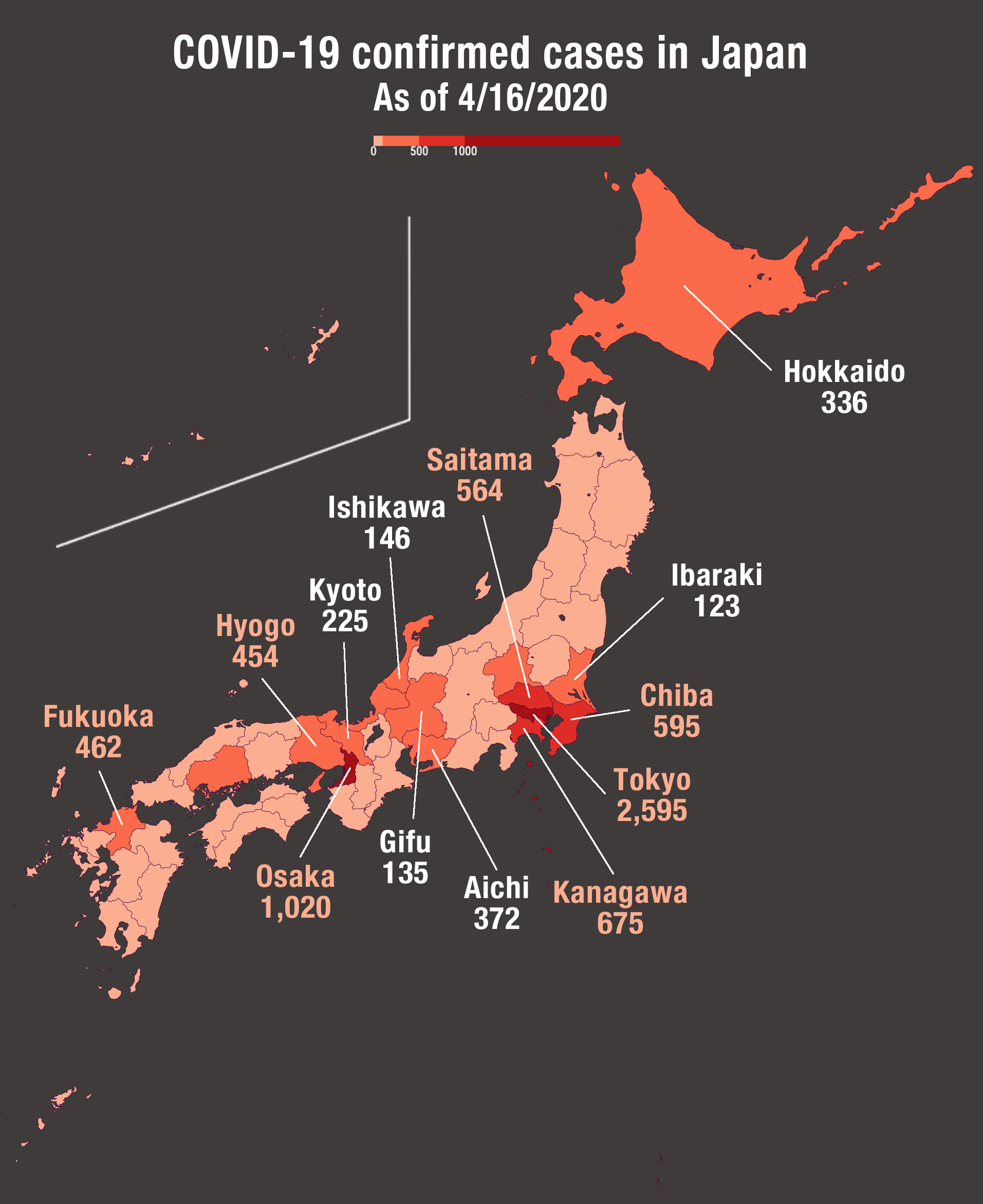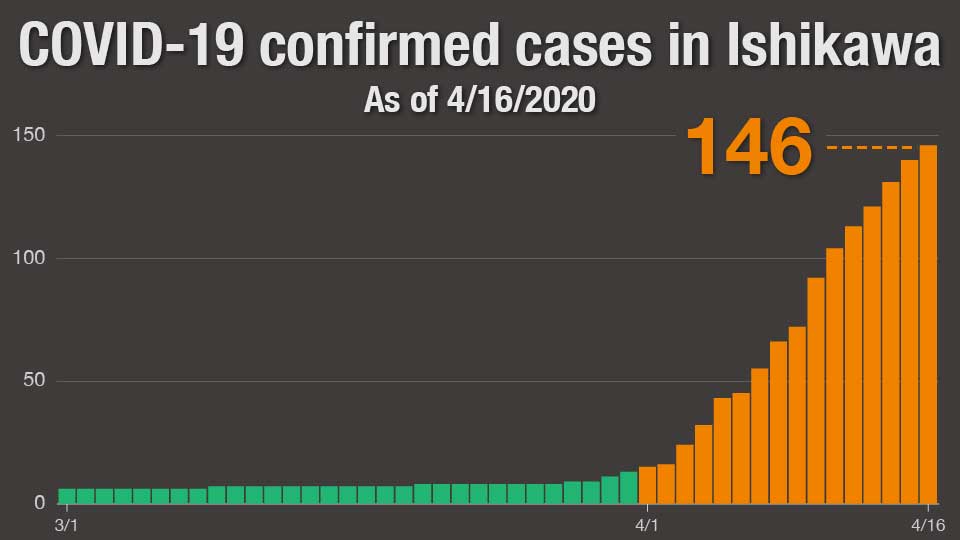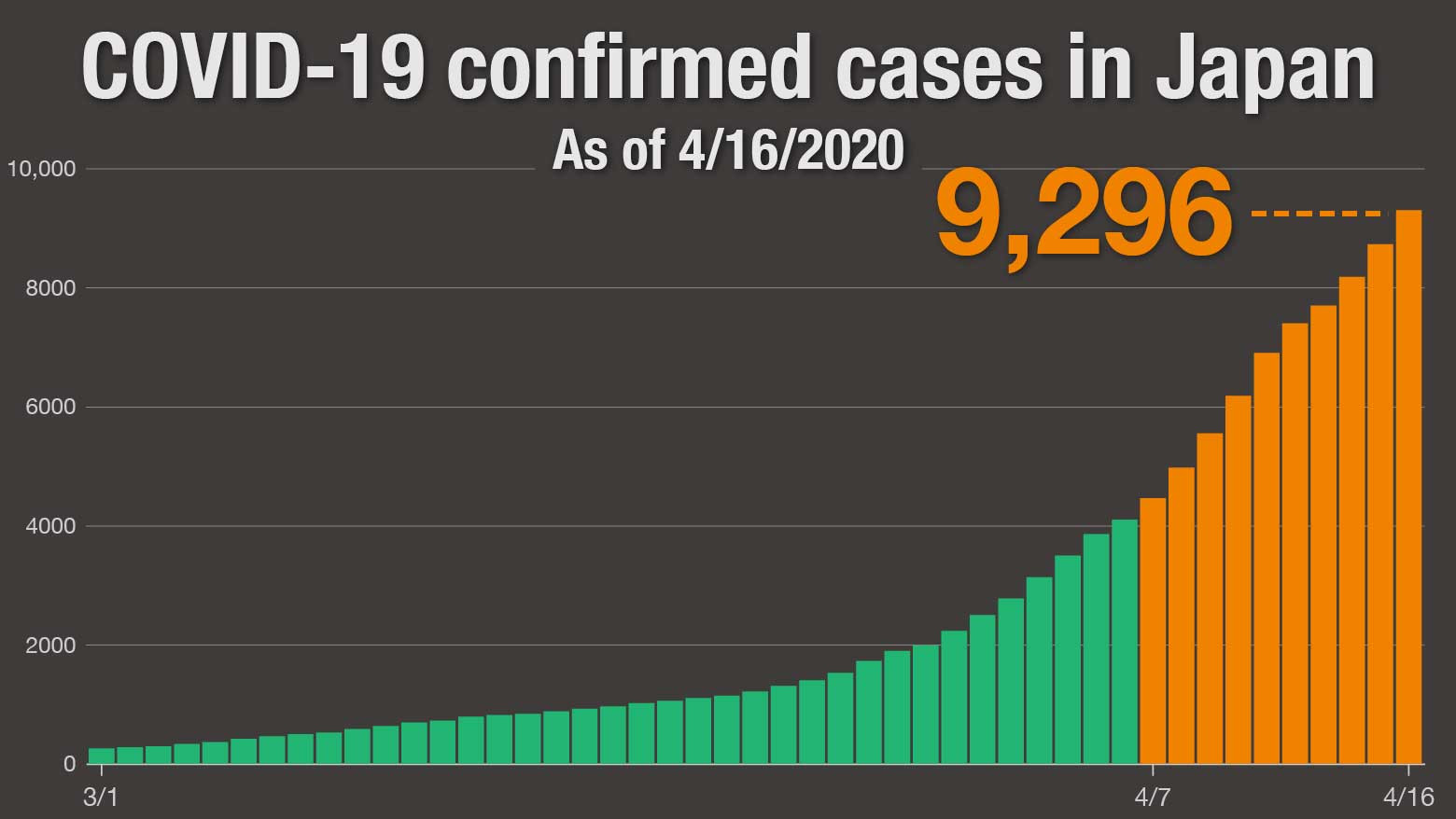Prime Minister Abe Shinzo said on Thursday the virus has been spreading in six prefectures — Hokkaido, Ibaraki, Ishikawa, Gifu, Aichi, and Kyoto — to the same extent as in the seven prefectures where the state of emergency originally applied. Those seven are Tokyo, Kanagawa, Saitama, Chiba, Osaka, Hyogo and Fukuoka.
The 13 prefectures have now been designated as "special alert prefectures" where it is necessary to promote efforts to prevent the spread of infections.
Abe said the number of infections has been growing elsewhere too, so the government has decided to expand the state of emergency nationwide. The aim is partly to prevent an exodus from the worst-hit regions, particularly during the upcoming holiday period that runs from late April through early May.

Tokyo has 2,595 confirmed infections, more than any of the prefectures. Osaka Prefecture is in second place with 1,020, followed by Kanagawa with 675, Chiba with 595, Saitama with 564, Hyogo with 454 and Fukuoka with 462.
More rural prefectures are also seeing a rapid increase in the number of infections. Abe said cluster infections have occurred in rural areas as people moved to them from urban centers.
Ishikawa Prefecture along the Sea of Japan coast had 146 cases as of Thursday. That’s one in nearly 8,000 people, one of the highest ratios per capita in Japan. There were 15 cases in the prefecture as of April 1. But the number has increased nearly 10-fold in just two weeks.
The governor of Ishikawa declared a state of emergency on April 13, three days ahead of the national declaration.

Prime Minister Abe says he wants prefectural authorities to urge residents to avoid non-essential trips across prefectural borders.
He has also called on people to cut person-to-person daily contact by at least 70 percent, and ideally 80 percent, to allow the state of emergency to be lifted as currently scheduled.
Abe plans blanket 100,000-yen cash handout
Abe says he plans to provide a blanket cash handout of 100,000 yen, about $930, to every person as part of economic measures to deal with the coronavirus outbreak.
The prime minister says the government had included in its economic package a cash handout of 300,000 yen per household for families whose income has fallen significantly. But he says he now thinks the government should broaden the scope of people entitled to a handout. He says he will ask the ruling parties to hold discussions to provide 100,000 yen to every person in the country in place of the 300,000 yen payment.
The prime minister said this is because everyone in the country will be asked to live under various restrictions, such as avoiding non-essential outings.


